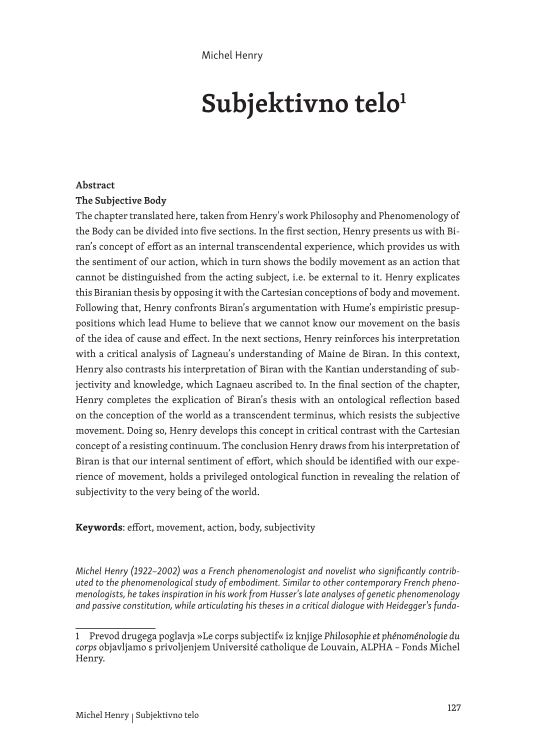The chapter translated here, taken from Henry's work Philosophy and Phenomenology of the Body can be divided into five sections. In the first section, Henry presents us with Biran’s concept of effort as an internal transcendental experience, which provides us with the sentiment of our action, which in turn shows the bodily movement as an action that cannot be distinguished from the acting subject, i.e. be external to it. Henry explicates this Biranian thesis by opposing it with the Cartesian conceptions of body and movement. Following that, Henry confronts Biran’s argumentation with Hume’s empiristic presuppositions which lead Hume to believe that we cannot know our movement on the basis of the idea of cause and effect. In the next sections, Henry reinforces his interpretation with a critical analysis of Lagneau’s understanding of Maine de Biran. In this context, Henry also contrasts his interpretation of Biran with the Kantian understanding of subjectivity and knowledge, which Lagnaeu ascribed to. In the final section of the chapter, Henry completes the explication of Biran’s thesis with an ontological reflection based on the conception of the world as a transcendent terminus, which resists the subjective movement. Doing so, Henry develops this concept in critical contrast with the Cartesian concept of a resisting continuum. The conclusion Henry draws from his interpretation of Biran is that our internal sentiment of effort, which should be identified with our experience of movement, holds a privileged ontological function in revealing the relation of subjectivity to the very being of the world.




